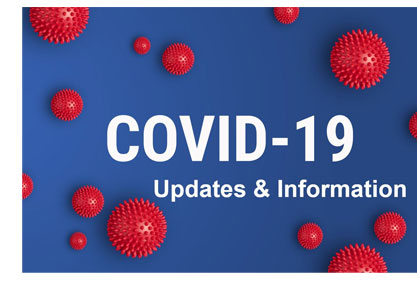 |
THIS ISSUE'S HEADLINES
Cautionary Insight Regarding Bonuses and the Wage Act
Navigating Due Diligence Planning and Equity Financing
Managing Impacts of the Coronavirus in the Construction Industry
COVID-19 Resources – PLDO Is Here To Help

CAUTIONARY INSIGHT REGARDING BONUSES AND THE WAGE ACT
 Massachusetts and Rhode Island are among those states that have enacted a Wage Act, under which employees who receive less than their full compensation due can sue for treble damages. In fact, in Massachusetts, a Wage Act violation leads to mandatory treble damages. Add in that a violation also leads to an award of reasonable attorneys’ fees, and the power of the Wage Act becomes clear. Massachusetts and Rhode Island are among those states that have enacted a Wage Act, under which employees who receive less than their full compensation due can sue for treble damages. In fact, in Massachusetts, a Wage Act violation leads to mandatory treble damages. Add in that a violation also leads to an award of reasonable attorneys’ fees, and the power of the Wage Act becomes clear.
A question that frequently arises is whether a state’s Wage Act applies to bonuses. For many employees, bonus amounts can constitute a significant portion of their compensation. Employed physicians, for example, often have a multi-tiered compensation model, consisting of a base salary, plus metrics for productivity, quality, shared savings, and so on. Sales people frequently receive a large portion of their compensation through commissions. Some companies have a tradition of giving employees a share of each year’s net profits in the form of a holiday bonus. When circumstances lead to these “extra” amounts not being paid, whether they are covered by the Wage Act becomes a critical question.
Labelling a compensation metric as a “bonus” does not shield it from the Wage Act in any state. Instead, the test for whether the Wage Act applies is essentially whether the “bonus” amount is discretionary, and whether it can be calculated using a pre-determined formula. So, the fact that a company has voluntarily given its employees, say, five percent of its net profits each year as a holiday bonus does not mean that a failure to do so in a subsequent year is a Wage Act violation. On the other hand, a failure to contribute to a collectively-bargained, formula-driven Employee Stock Ownership Plan likely would be a violation.
In Rhode Island, the Wage Act specifically carves out bonuses “in additional to the payment of wages.” Wages “means all amounts at which the labor or service rendered is recompensed, whether the amount is fixed or ascertained on a time, task, piece, commission basis, or other method of calculating the amount.” What this means, in essence, is that a bonus that constitutes compensation for services rendered will be covered by the Wage Act. So, for example, failure by a physician group or a hospital to pay the formula-driven productivity metric in a physician’s employment agreement would be a violation; whereas, failure to pay a relocation bonus likely would not.
Whether a bonus such as a promise to pay stock options constitutes compensation for services rendered may return a different answer in different states. Under any state’s Wage Act, the guidance found in case law is swamped by the endless number of scenarios employers and employees can face. For help navigating this critical law and the treble damages and attorneys’ fees it carries, please contact PLDO Partner Joel K. Goloskie at 401-824-5100 or email jgoloskie@pldolaw.com.
[back to top]

NAVIGATING DUE DILIGENCE PLANNING AND EQUITY FINANCING
 When contemplating making an investment in a newly formed company, due diligence must be performed both by and for the investor. Notwithstanding, the entrepreneur will also benefit from this process and should create their own due diligence plan so they are prepared to answer the difficult financial and operational questions that will be asked by the investor. The nature and scope of the due diligence plan is dependent upon the type of company that is seeking the financial support and generally falls into five categories; i.e., legal, financial, people, market and technical. When contemplating making an investment in a newly formed company, due diligence must be performed both by and for the investor. Notwithstanding, the entrepreneur will also benefit from this process and should create their own due diligence plan so they are prepared to answer the difficult financial and operational questions that will be asked by the investor. The nature and scope of the due diligence plan is dependent upon the type of company that is seeking the financial support and generally falls into five categories; i.e., legal, financial, people, market and technical.
PLDO Managing Principal Gary R. Pannone breaks down the five categories and provides questions in each area that should be addressed in his advisory, Navigating Due Diligence Planning and Equity Financing. He explains why the company should be ready with answers and what the investor needs to know early in the process in order to arrive at what their walk-away position will be and what is needed to gain comfort in assessing the risks of making the investment.
Creating a due diligence plan is critical to the success of the process. Making certain that the information gathered is comprehensive and efficiently disclosed will determine the success of the investment. For more information, please contact Attorney Pannone at 401-824-5100 or email gpannone@pldolaw.com.
[back to top]

MANAGING IMPACTS OF THE CORONAVIRUS IN THE CONSTRUCTION INDUSTRY
 The coronavirus pandemic has impacted every industry and will continue to drain resources until the crisis ends or we find a cure. Thousands of businesses have been required to shut down during the past eight months and are slow to reopen. However, there were several industries deemed “essential” by government officials that have remained open and avoided a significant portion of the impact. Although the construction industry is one such industry considered essential and remained open in most states, the challenges caused by the pandemic will have a long-term impact from an operational and economic standpoint. The coronavirus pandemic has impacted every industry and will continue to drain resources until the crisis ends or we find a cure. Thousands of businesses have been required to shut down during the past eight months and are slow to reopen. However, there were several industries deemed “essential” by government officials that have remained open and avoided a significant portion of the impact. Although the construction industry is one such industry considered essential and remained open in most states, the challenges caused by the pandemic will have a long-term impact from an operational and economic standpoint.
Many construction companies are now preparing for a slowdown in adding new projects to their inventory causing internal pressure regarding how to manage the workforce. Developers are forced to evaluate how the ripple effect of the pandemic will impact decisions to move forward with projects that have been in the pipeline for several years. In addition, new safety guidelines limiting the number of workers per shift impacts productivity, scheduling and closing out projects during this new normal.
In order to survive, the construction industry will have to brace for more changes beyond new safety protocols. Taking a deep dive into how the industry is being impacted presently and in the future in order to help developers and owners be prepared to make informed decisions is laid out in an advisory by PLDO Managing Principal Gary R. Pannone entitled, Managing Impacts of the Coronavirus in the Construction Industry. The article addresses supply chain obstacles, what to anticipate in contract negotiations going forward, and why the new normal in the construction industry will result in longer time frames to complete projects and require significant cost adjustments all around. Attorney Pannone is available to discuss these issues and other business matters regarding the construction industry and can be reached at 401-824-5100 or by email at gpannone@pldolaw.com.
[back to top]

COVID-19 RESOURCES – PLDO IS HERE TO HELP
 PLDO’s team of attorneys continue to provide information and updates to businesses about legal issues regarding the coronavirus pandemic. If you have questions and concerns about impacts to your organization, please contact your PLDO attorney directly in our Rhode Island, Massachusetts or Florida offices or call our toll free number at 866-353-3310 to discuss your legal matter. We are here to help. You can also access our COVID-19 online resources that include advisories, alerts, webinar recordings and e-alerts to help you make informed decisions. PLDO’s team of attorneys continue to provide information and updates to businesses about legal issues regarding the coronavirus pandemic. If you have questions and concerns about impacts to your organization, please contact your PLDO attorney directly in our Rhode Island, Massachusetts or Florida offices or call our toll free number at 866-353-3310 to discuss your legal matter. We are here to help. You can also access our COVID-19 online resources that include advisories, alerts, webinar recordings and e-alerts to help you make informed decisions.
[back to top]
|
 |







